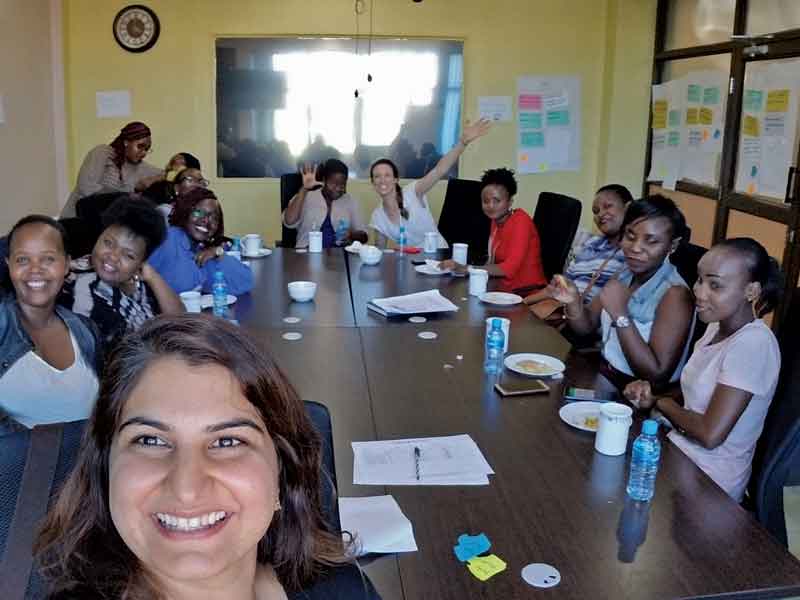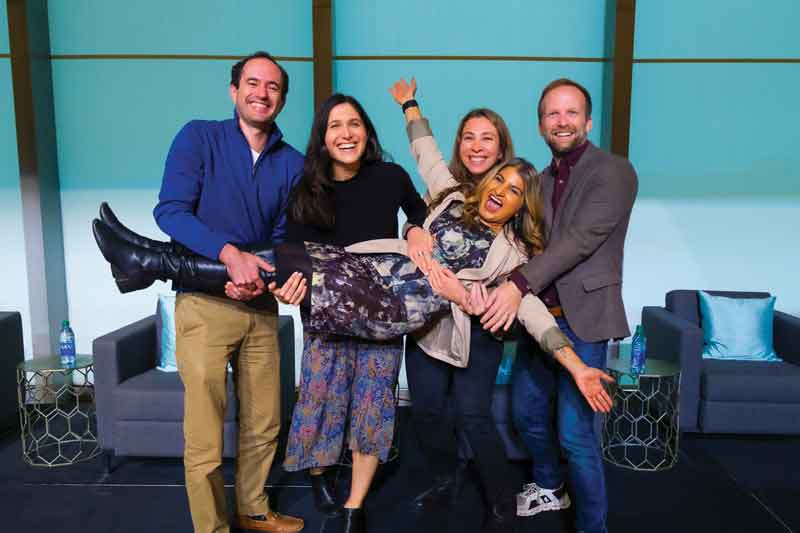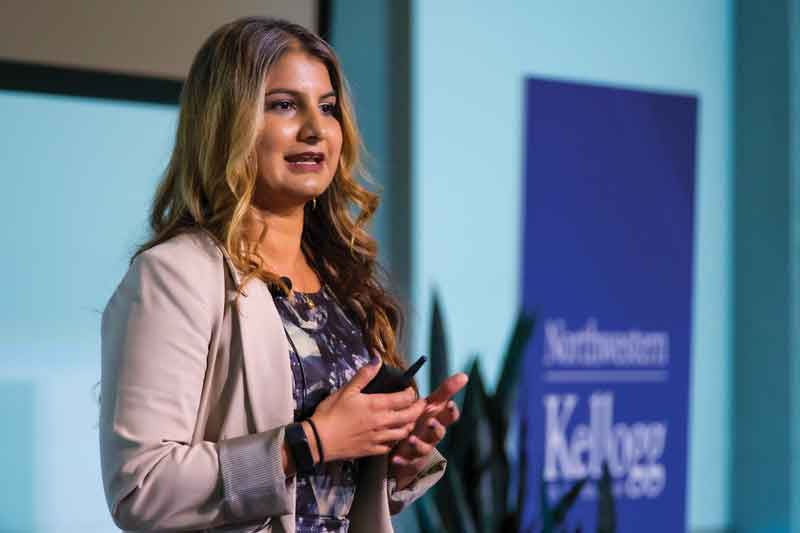Sahar Jamal, founder and CEO of Maziwa and McGowan Fellow Class of 2019, recently followed up with the Fund after her moving speech at the 2023 McGowan Symposium on Business Leadership & Ethics. She discussed how listening to her community’s needs helped create a product with the potential for great impact.
Where are you currently?
I live in Nairobi, but I’m currently in Vancouver, where I was born. My parents are from Tanzania and India, so I have a deep connection to those countries as well. I’ve always been able to see the vast differences of growing up as a girl in Canada, compared to what that might have been like in India or Tanzania. It’s been one of my most important inspirations.
How did you begin working on Maziwa?
I knew I wanted to use the training that I had gotten in my former career as a brand manager to drive social impact, specifically in the global health and women’s health space. I honestly never thought I would start a business. I wanted to get exposure to a sector that I wasn’t familiar with, and I ended up working at a very small social enterprise in Kenya. During that time, I learned a lot about breastfeeding; I learned about the magical powers of breast milk and a lot of the challenges that women face in terms of being able to provide their babies with breast milk, especially while working. It all happened pretty naturally.
How did you take the leap to pursue this idea full time?
I was in my McGowan Fellowship at that time and was also receiving a lot of support from Kellogg simultaneously. Those financial resources really made a big difference in my decision to pursue this idea. After graduation, I jumped right in. The financial assistance had given me the chance to do work I was passionate about instead of having to do something that would simply allow me to pay back loans.
Other than the financial gain, what else did you take away from your McGowan Fellowship?
During our winter Fellows retreat, we looked at the unhoused population, and the conversations that we had with that community were really enlightening. Many of us assume that it’s just very difficult to find a shelter, or that there are other reasons why people are not accessing support. But what we learned was that many individuals believe that where they’re living on the street is their home. Their home allows them their freedom and independence. The home, even if it’s just a tent, often means they don’t have to share a space with unsafe people. Once we understood that, we could have different discussions around aid, as well as what was missing from the programs currently available to that population. We needed to hear their voices to create change. Our assumptions had been incorrect; the truth was only a conversation away.
You learned to listen to the community you’re trying to serve?
 Exactly. Also, in my experience with Jacaranda Health in Kenya, we had interviews with hundreds of moms. I was able to learn that moms are very well aware of the benefits of breastfeeding, and they’ve been told that they should breastfeed, but the challenge is that they actually don’t have the practical support that they need. Having that firsthand conversation was really the impetus for this whole idea. And I think continuing to have that kind of feedback loop in our work has been really important.
Exactly. Also, in my experience with Jacaranda Health in Kenya, we had interviews with hundreds of moms. I was able to learn that moms are very well aware of the benefits of breastfeeding, and they’ve been told that they should breastfeed, but the challenge is that they actually don’t have the practical support that they need. Having that firsthand conversation was really the impetus for this whole idea. And I think continuing to have that kind of feedback loop in our work has been really important.
Can you directly see what you’ve learned from your community in your product?
The direct result was the production of the Wema breast pump, which is a discreet wireless and portable pump that can be used in any environment. We also have a network of community breastfeeding ambassadors that distribute products while also delivering culturally relevant lactation support. The community ambassadors are a great way for us to have an ear to the ground, and they’re recruited from the communities that they serve, so they really understand the cultural myths or misconceptions that might exist. Communication and learning are inherent in our business.
Living in Nairobi, what are you doing personally to continue this feedback loop?
I often go to the training sessions myself and sit in the back just to hear what is being said, what’s being taught and learned. I listen in as much as I can. The other thing that we do is survey every single person that has used our products or services. Any person who has rented or purchased the pump gets a phone call. Anyone who’s interacted with our ambassador training receives phone surveys. I read all the feedback. We also have a social media network where people can engage and interact with us, sharing what their needs are or what challenges they might be facing, and we respond to all of them. It’s clear you’re deeply dedicated to community care.
Do you see a similar dedication to positive change in other McGowan Fellows?
 Conversations between McGowan Fellows are different than I might have with general alumni if I were to go to an MBA reunion or something similar. I wouldn’t have the same level of deep conversations. So many Fellows are trying to fight the big fight and it’s very inspirational. Most of us have tried to focus on principles in our work or purpose-driven approaches to business.
Conversations between McGowan Fellows are different than I might have with general alumni if I were to go to an MBA reunion or something similar. I wouldn’t have the same level of deep conversations. So many Fellows are trying to fight the big fight and it’s very inspirational. Most of us have tried to focus on principles in our work or purpose-driven approaches to business.
What else do you admire in your fellow Fellows?
The thing that I appreciate the most about the Fellowship is that it encourages business leaders to use their power and influence for societal impact. Everything that we do has a social impact, whether it’s negative or positive, and so as people with influence and power, I think it’s our responsibility to use that in a way that’s beneficial to society. I’ve believed that my whole life, and I see the Fellows integrate it beautifully. As a group, the Fellows tend to value humility and empathy in the way they approach work, especially in leadership development, and I am proud to call them my peers.

